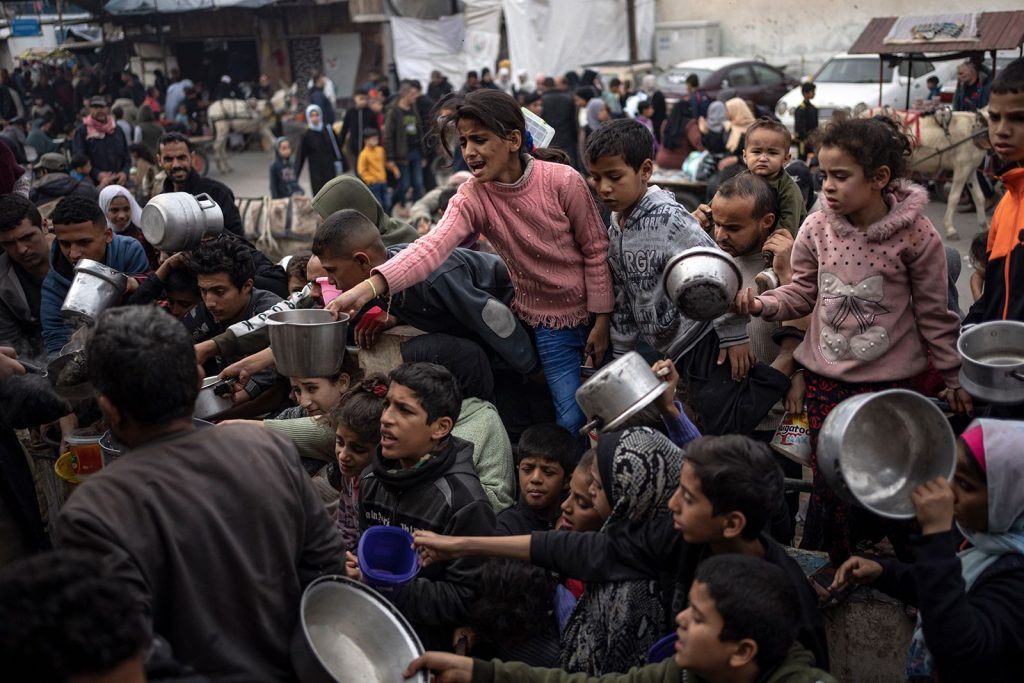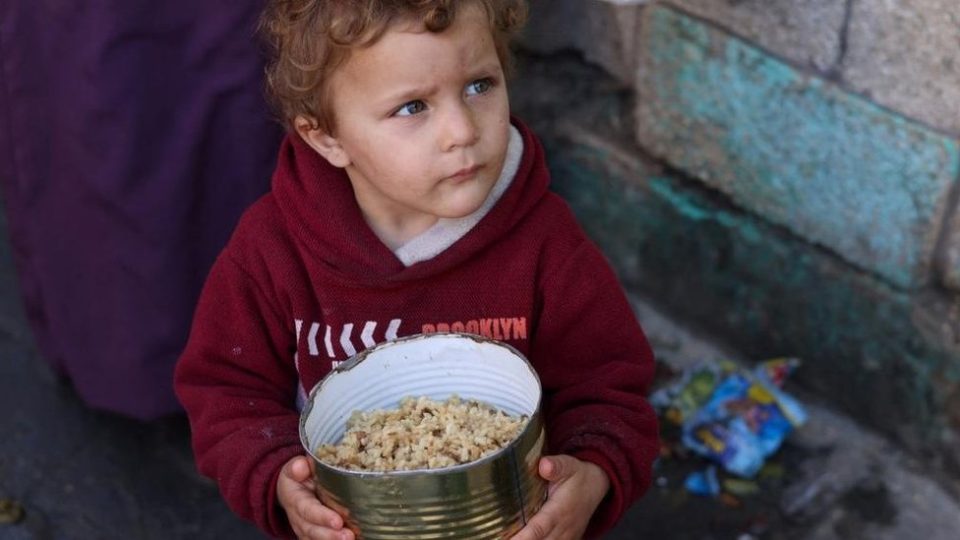FALCON POWERS – The Regional Director of the World Health Organization, Hanaa Boulekerid, said on Tuesday that some citizens in Gaza are forced to drink sewage water and consume animal feed, calling for an immediate increase in aid deliveries to the besieged enclave.
The Regional Director for the Eastern Mediterranean region of the World Health Organization warned that “the war on the Gaza Strip had an indirect impact on healthcare throughout the region.”
The Saudi child health expert, in an interview with the French agency in Geneva, confirmed that what is happening will have dangerous and lasting effects on children.
She added that within the enclave “there are people now eating animal feed, eating grass, and drinking sewage water.”

She explained that “children are barely getting food, while trucks are parked outside Rafah.”
The United Nations warns that famine looms in Gaza, where 1.1 million people, or about half the population, face catastrophic levels of food insecurity.
The United Nations Office for the Coordination of Humanitarian Affairs said on Tuesday that the restrictions on the entry of aid “continue to undermine the safe delivery of life-saving humanitarian assistance across Gaza,” and that the conditions “have deteriorated further” in May. A small amount of aid mainly enters through the Kerem Shalom crossing.
According to Boulekerid, who took office last February, Gaza needs “peace, peace, peace,” in addition to a significant increase in the delivery of aid by land.
After a recent visit to the Rafah crossing from Egypt to the southern Gaza Strip – a vital humanitarian corridor closed by the Israeli occupation forces earlier this month – she urged Israel to “open those borders.”
She indicated that the Kerem Shalom crossing “is not enough,” and that efforts in maritime corridors and air operations are no longer logical given the existence of less costly and more effective land routes where “trucks are queuing” outside.
Boulekerid expressed particular dissatisfaction with the ban on the entry of medical equipment, saying: “We are talking about ventilators, and chemicals for water purification.”
Belkhairy stressed the urgent needs of patients in Gaza, where up to 11,000 critically ill and injured patients are in need of medical evacuation.
She said, “The patients who are leaving suffer from some extremely complex injuries: multiple fractures, drug-resistant infections, and children with severe deformities.”
According to Belkhairy, “In order to rehabilitate and treat such individuals, they require highly complex healthcare,” noting the tremendous strain on the healthcare systems in the neighboring host countries, especially Egypt.
Last week, the World Health Organization warned of a “sudden halt” to medical evacuations since the Israeli occupation launched its ground offensive on Rafah in early May, warning that more people will die while awaiting care.
Belkhairy, a pediatric infectious disease specialist, spoke about the short-term and long-term impacts of the war on children.
She explained that the war has had a devastating impact on basic public health measures, such as clean water, healthy food, and routine immunizations, leaving children vulnerable to measles, chickenpox, diarrhea, and respiratory illnesses


